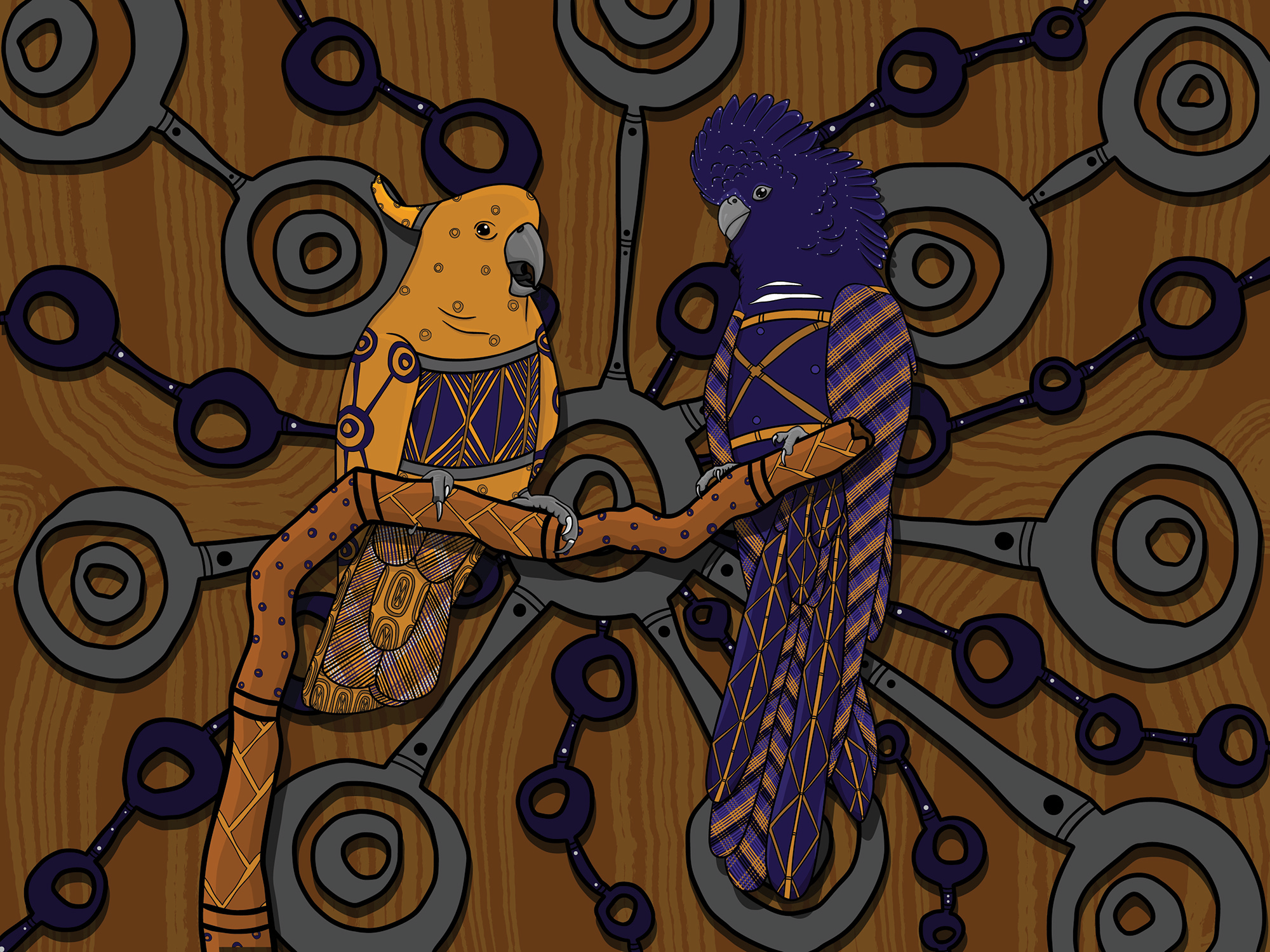
A conference presented by Professor John A. List, Australian National University (ANU) and University of Chicago, Professor Dana Suskind, University of Chicago, and Pro-Vice Chancellor Professor Ruth Wallace, Head of the Faculty of Arts and Society at Charles Darwin University (CDU).
This event is being organised by the John Mitchell Economics of Poverty Lab in the ANU Research School of Economics in partnership with CDU.


Artwork: Sit together
Trent Lee, Bundirrik Cultural Services and Design
Event Details
Date
Venue
CDU Darwin Waterfront
21 Kitchener Dr, Darwin City NT 0800
Day 1 – Thursday 20 June 2024 (Waterfront Ground Floor Indigenous Room)
|
Time |
Title |
Speaker |
Location |
|---|---|---|---|
|
3pm |
Registration opens |
|
Waterfront Ground Floor Indigenous Room |
|
4 – 5pm |
Smoking Ceremony by Traditional Owners |
Trent Bundirrik Lee |
CDU Waterfront Precinct |
|
5 – 7pm |
Welcome to Country by Traditional Owners followed by opening address and welcome reception |
Dr Aunty Bilawara Lee |
CDU Waterfront Precinct |
Day 2 – Friday 21 June 2024 (CDU Waterfront Precinct, Level 5)
|
Time |
Title |
Speaker |
Location |
|---|---|---|---|
|
8.30 – 9am |
Conference opening |
Carlyn Waters (ANU) |
5.03: Main room |
|
Official welcome (via zoom) |
Professor Scott Bowman (CDU) |
||
|
9 – 10am |
Early childhood education: The investment that works in unanticipated ways and times |
Professor John List (ANU and UChicago) |
5.03: Main room |
|
Q&A Indigenous perspective |
Facilitated by Carlyn Waters | ||
|
10 – 10.30am |
Morning tea |
|
Break out area |
|
10.30 – 11.30am |
The potential of smart technology to support caregivers and optimise children’s early development |
Professor Dana Suskind (ANU and UChicago) |
5.03: Main room |
|
Q&A Indigenous perspective |
Facilitated by Carlyn Waters |
||
|
11.30am – 12.15pm |
Incorporating Indigenous Knowledges into the broader curriculum |
Professor Asmi Wood (ANU) |
5.03: Main room |
|
Q&A Indigenous perspective |
Facilitated by Carlyn Waters | ||
|
12.15 – 1.15pm |
Lunch |
|
Break out area |
|
1.30 – 1.45pm |
Panel discussion scene setting |
Carlyn Waters (ANU) |
5.03: Main room |
|
1.45 – 2.45pm |
Panel discussion #1: Childcare and the complexities of access and participation |
Panel members: Associate Professor Brigid Jordan (UMelb) and Dr Anne Kennedy (UMelb) |
5.03: Main room |
|
Panel discussion #2: Strengthening the empirical assessment of indigenous education policy successes |
Chaired by Emeritus Professor Bob Gregory (ANU) Panel members: Professor Stefanie Schurer (USyd) and Emeritus Professor Bob Gregory (ANU) |
3.20/21: Breakout room 2 |
|
| Panel discussion #3: Higher education |
Chaired by Associate Professor Cagri Kumru (ANU) |
3.09: Breakout room 3 | |
|
2.45 – 3.15pm |
Afternoon tea |
|
Break out area |
|
3.15 – 3.45pm |
Disentangling motivation and study productivity as drivers of adolescent human capital formation: Evidence from a field experiment and structural analysis |
Dr Sutanuka Roy (ANU) |
5.03: Main room |
|
3.45– 4.15pm |
Parental beliefs about child development: Community vs. expert knowledge |
Assistant Professor Karen Ye (Queen’s University) |
5.03: Main room |
|
4.15 – 4.45pm |
Mega panel wrap up |
A Facilitated session with Carlyn Waters and all speakers to share research findings and gather constructive feedback from the conference. |
5.03: Main room |
|
4.45 – 5pm |
Closing comments |
Professor Rabee Tourky (ANU) |
5.03: Main room |
Early childhood education: The investment that works in unanticipated ways and times
Professor John A. List
Early childhood education has been celebrated as a means for policymakers to lessen wealth inequality and achievement outcomes. This lecture argues that our traditional understanding is incomplete: standard approaches to measure the effects of investment in early childhood education are missing two key channels of impact.
The potential of smart technology to support caregivers and optimise children’s early development
Professor Dana Suskind
Science has revealed that nurturing talk and interaction with loving adults is what fuels children’s early brain development. Though this kind of interaction is firmly rooted in the human connection between child and caregiver, Professor Suskind believes that artificial intelligence, machine learning, and other emerging technologies have a role to play as well.
In this session, Professor Suskind will demonstrate how such technology can be used to support parents and caregivers in their crucial roles as brain architects—in ways that allow for and celebrate cultural and linguistic diversity. Contrary to prevailing wisdom, technology need not drive people apart. In fact, as Professor Suskind will illustrate, it can help strengthen the bonds that allow children to learn, grow, and thrive. She will share examples of several tools developed by the University of Chicago's TMW Center for Early Learning + Public Health that will help individual parents and caregivers, from all backgrounds, boost children’s development—and enable Australia to better support all its citizens in this essential task.
Incorporating Indigenous Knowledges into the broader curriculum
Professor Asmi Wood
Australia has taken two centuries to begin to appreciate the values and perspectives of the world’s oldest continuing civilisations. Aboriginal and Torres Strait Islander peoples, often in common with other indigenous peoples worldwide, have developed civilisations, protocols for engagement and the specialised ecological and spiritual care for what is in Australia now termed as an ecologically mega-diverse continent. Developing an educational system that benefits from such an accretion of deep knowledge and care for Country is in the best interests of all students and in turn the broader community as well. The ANU has agreed to incorporate these knowledges into the broader curriculum but is largely at a loss as to how this could be done in practice. The ANU College of Business and Economics (CBE) has taken the brave leap into this area, creating the time, space and opportunity in its broader curriculum for such knowledges to influence the general student cohort; which I predict will be of great benefit, while setting a clear path for other areas of the University to follow in bringing an appreciation of this knowledge to the broader student base. This talk examines some examples of how this is going to be achieved in CBE’s case, in cooperation with Charles Darwin University where this conference is being held.
Panel 1: Higher education
Chair: Associate Professor Cagri Kumru
Indigenous higher education at the heart of universities
Professor Leanne Holt
The 2024 Australian University Accord Report stated that their vision was to ‘create a higher education sector that delivers opportunities for all, and one that puts First Nations people at the heart of the higher education system’. The challenge now lies in articulating what this means for the future of Indigenous higher education, engagement and research, both within the education system as well as within individual universities. In response to this, Professor Holt will present some considerations in taking advantage of the opportunities and possibilities presented in the Accord report.
Access to tertiary education
Professor Bruce Chapman
Professor Chapman will be presenting evidence, thoughts and perspectives related to the issues of the access of Indigenous Australians to tertiary education, with analysis done jointly with Professor Boyd Hunter.
Panel 2: Schooling experience
Chair: Professor Bob Gregory
The many interruptions to schooling experienced by First Nations children in the Northern Territory: Evidence from the Child and Youth Development Research Partnership
Professor Stefanie Schurer
In this presentation, Professor Schurer will first provide an overview of the variation in school attendance, completion and achievement by First Nations children in the Northern Territory. She will then highlight the hard facts of the many interruptions to schooling that First Nations children experience. Factors that lie predominantly outside the control of families, she will discuss the role of disruptive public policy (e.g., the 2007 Northern Territory Emergency Response), geographic mobility of carers (e.g., to seek medical care in the urban centres), health threats (e.g., untreated otitis media), or weather shocks. Professor Schurer’s insights are based on a decade long analysis of novel linked administrative data, the Children and Youth Development Research Partnership (CYDRP), and engagement with First Nations peoples and government officials – opportunities that arose through her role as chief investigator on multiple research grants. Professor Schurer will conclude with speculations about the unknowns of, and the policy solutions to, the education interruptions experienced by First Nations children in the Northern Territory.
A brief overview of education outcomes for First Nations children
Professor Bob Gregory
Professor Gregory will provide a very brief overview of education outcomes for First Nations children, Australia wide, with most emphasis on NT school policies, outcomes and absenteeism. The discussion will cover the inadequacies and widely unrealistic expectations of past national policies and the changing nature of Closing the Gap priorities and strategies in response. A selection of difficult and controversial questions will be raised for discussion such as: Does existing evidence and evaluations to date suggest that extension of Australian pre-school preparation to all children has failed to make a significant contribution to narrowing the gap in school outcomes? Can “wrap around policies” significantly improve indigenous school education outcomes in the short run? Does school absenteeism really matter? Can money buy increased school attendance? What has been the nature of expert evidence for introducing new education policies and expanding old ones? Is there a noticeable downgrading of the importance of school education in the evolution of Closing the Gap strategies? What have we learnt over the last decade that points clearly to a way forward for the development of successful school policies?
Panel 3: Childcare and the complexities of access and participation
Chair: Dr Dana Hanna
Associate Professor Brigid Jordan AM
Dr Anne Kennedy
Disentangling motivation and study productivity as drivers of adolescent human capital formation: Evidence from a field experiment and structural analysis
Dr Sutanuka Roy
Dr Roy will discuss a field experiment conducted across three diverse school districts to structurally identify student motivation and estimate productivity parameters in a model of adolescent human capital development. By observing exogenous variation in study time, homework task completion, and test results, we can identify individual and demographic variations in motivation and study time effectiveness. Struggling students typically do not lack motivation, but rather have difficulties converting study time into completed assignments and proficiency improvements. The study also shows that attending a higher-performing school is associated with both higher productivity and higher motivation relative to peers with similar observables in lower-performing schools. Counterfactual analyses provide a suite of policies to reduce racial performance gaps and suggest that school quality differences account for a substantial share of the racial differences in test scores.
Parental beliefs about child development: Community vs. expert knowledge
Assistant Professor Karen Ye
Policymakers commonly use information campaigns to shift individuals’ beliefs and behaviours. However, the effectiveness of those policies may be limited if the information provided goes against prevalent community beliefs. We focus on the context of early parenting practices, where beliefs about early skill formation have been shown to be important determinants of parental investments, and subsequently, child outcomes. This paper explores how signals sent by experts or policymakers interact with signals sent by community members in people’s belief updating process. We conducted an artefactual field experiment among 18 villages in the province of Tucumán, Argentina, and exogenously varied exposure to scientific information and exposure to beliefs held by friends or other village members. We find that while participants initially update their beliefs about parenting when presented with scientific evidence, these changes can be reversed when confronted with conflicting community beliefs. Furthermore, taking the randomly selected lab participants as seeds in their community network, we show that the impacts on parenting beliefs do not spread to the rest of the village and fade, as measured in a follow-up survey three months later.

Professor John A. List
Professor List is the Kenneth C. Griffin Distinguished Service Professor in Economics at the University of Chicago and holds the appointment of Distinguished Professor of Economics at ANU.
His research focuses on combining field experiments with economic theory to deepen our understanding of economic science. In the early 1990s, Professor List pioneered field experiments as a methodology for testing behavioural theories and learning about behavioural principles that are shared across different domains. His collective research has led to collaborative work with several different schools and charities, as well as firms, including: Lyft, Uber, United Airlines, Virgin Airlines, Humana, Sears, Kmart, Facebook, Google, General Motors, Tinder, Citadel, Walmart and several non-profits.
His research includes over 200 peer-reviewed journal articles and several published textbooks. He co-authored the international best seller, The Why Axis, in 2013, and is author to best seller, The Voltage Effect. He is a current Editor of the Journal of Political Economy.

Professor Dana Suskind
Professor Suskind is Co-Director of the Thirty Million Words (TMW) Center for Early Learning + Public Health at the University of Chicago. She is a Professor of Surgery and is the Founder of the Paediatric Cochlear Implant Program, and Founder of TMW – an evidence-based intervention program designed to help narrow the language gap between children from lower-income families to those in wealthier households.
Professor Suskind’s research focuses on foundational brain development, with an overarching aim to affect a population-shift in the knowledge and behaviour of parents and caregivers, in order to reduce the achievement gap and prevent early cognitive disparities at onset. Given the absence of any such tools in the field, she developed a parent knowledge assessment tool, the Scale of Parent/Providers’ Expectations and Knowledge (SPEAK), which influences all three areas of her research: behaviour change interventions, efficacy testing, and implementation scaling.
Her research includes over 35 peer-reviewed journals and 150 national and international speaking engagements. Author of the book Thirty Million Words: Building a Child’s Brain, she has been featured in New York Times, The Washington Post, Crain’s Chicago Business, National Public Radio, and other national media outlets in America.
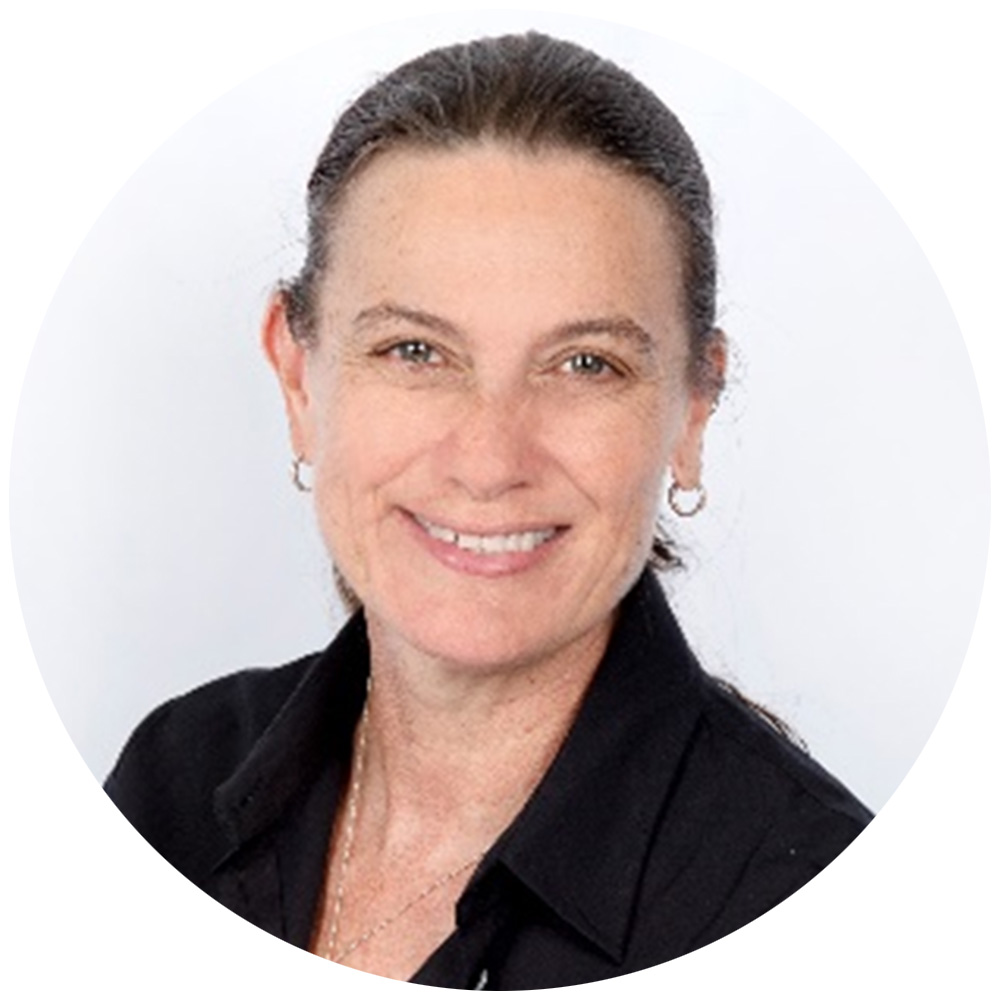
Professor Ruth Wallace
Pro Vice-Chancellor Professor Ruth Wallace is head of the Faculty of Arts and Society at CDU. The Faculty brings together interdisciplinary knowledge and expertise in the areas of Indigenous knowledge practices, human geography, disaster preparedness and management, education, law, business, accounting, languages, educational tertiary enabling, humanities and the creative industries.
Ruth was the first woman to be awarded the Fulbright Distinguished Chair in Agriculture and Life Sciences Scholarship. Her research interests relate to the links between identity, marginalised learners, and the development of effective learning and workforce development pathways. This work is situated in regional and remote areas of Northern Australia and Indonesia, with a specific focus in research approaches to improve service delivery and adaptation, undertaken with Aboriginal people in remote and regional areas.
Ruth’s research connects to digital systematic learning pedagogies, and approaches to workforce development through remote-based enterprises. Ruth leads the workforce development research theme of the Northern Institute at CDU and focuses on collaborative approaches to workforce development and engagement with community, governments and industry that are sustainable and scalable. Ruth has extensive experience in educational practice development and as a teacher at all educational levels.

Professor Asmi Wood
Professor Wood teaches at the ANU College of Law and is a professor at the ANU Law School. He is a Barrister and Solicitor. His immediate past position was as Interim Director of the National Centre for Indigenous Studies. He supports the ANU College of Law Indigenous Program and works closely with the Tjabal Centre. His areas of research and teaching interest include legal ethics, constitutional law, humanitarian law, international law and the treatment of Indigenous peoples within legal frameworks other than their own normative systems.
Professor Wood was the ANU Indigenous Alumnus of 2020 and was made a Principal Fellow of the Higher Education Academy (UK) in 2017. He was the recipient of the OLT Australian Award for University Teaching: Neville Bonner National Award for Education and Teaching Excellence in 2015, and the ANU Vice-Chancellor's Award for Teaching Excellence in 2010.
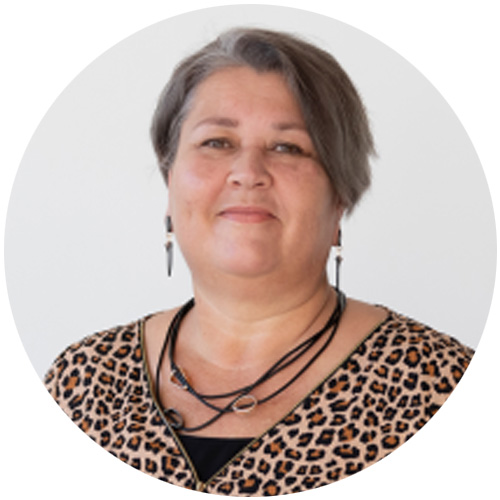
Carlyn Waters
Carlyn has over 30 years’ experience working in Aboriginal and Torres Strait Islander affairs at local, state and national levels and is committed to supporting employment, education and economic opportunities for Indigenous people.
She joined the Australian Public Service in 2000 and currently is a part time Senior Fellow in the Practice of Business at the ANU College of Business and Economics, and part time Branch Head in the Department of Climate Change, Energy, the Environment and Water. When she isn’t working in these roles, Carlyn volunteers as a Non-Executive Director for The Stars Foundation (a not-for-profit that supports Indigenous girls and young women to attend and remain engaged at school, complete Year 12 and move into work or further study), and the Foundation for National Parks and Wildlife (a national not-for-profit committed to leaving a better Australia for our kids).
Carlyn is committed to improving outcomes for all Australians and uses her postgraduate study to support and explore opportunities for economic growth between Indigenous communities, Australia’s business sector and government partnerships.
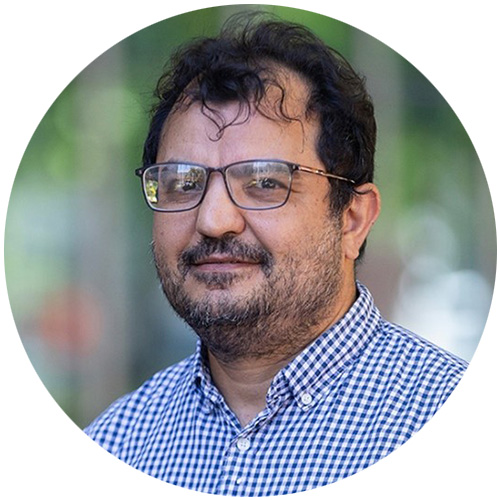
Associate Professor Cagri Kumru
Cagri is an Associate Professor of Economics, an Associate Investigator at the Centre of Excellence in Population Ageing Research, and a Research Associate at the ANU Centre for Applied Macroeconomic Analysis. His research spans macroeconomics, public economics, and behavioural economics, with a focus on the macroeconomic implications of various tax and social insurance programs. He also works with large-scale computational models, often incorporating insights from behavioural economics literature.
Cagri’s work has been funded by the Australian Research Council and the US Social Security Administration Michigan Retirement Centre. His current research relates mainly to income and wealth inequalities. Cagri has been serving on CBE's Reconciliation Action Plan (RAP) Committee since 2015 and the ANU RAP Working Party Committee since 2018.

Professor Leanne Holt
Professor Holt, a Worimi/Biripi woman, is Deputy Vice-Chancellor Indigenous at UNSW. With over 25 years’ experience in higher education, she was previously PVC Indigenous Strategy, Macquarie University, and prior to this, co-Director of the Wollotuka Institute, University of Newcastle.
Professor Holt’s educational and research interests are in leadership and Indigenous education and health policy. She is Chair and member of local, national and international Indigenous education and community committees and expert panels, and has Chaired external reviews of Indigenous programs and services at universities nationally and internationally.
Professor Holt is the author of the book Talking Strong and has been recognised for her leadership, receiving national and international awards.

Professor Bruce Chapman
Bruce is Emeritus Professor of Economics at the ANU College of Business and Economics. He has a PhD from Yale University and has published around 300 papers/articles, and several books/edited volumes, mostly in the area of higher education financing and applied labour economics. He helped motivate and design Australia's income contingent student-loans system, implemented in 1989, and has been heavily involved in research and policy related to the design and redesign of student-loan systems in about 15 other countries. He is particularly interested in questions of access and equity of disadvantaged people with respect to higher education.

Professor Stefanie Schurer
Professor Schurer is an international expert on the lifecycle dynamics and inequality of human development and linking sensitive administrative data for policy evaluation. She is interested in the effectiveness of paternalistic public policies, policies which override personal choice to avoid the negative externalities of alleged problem behaviours.
Professor Schurer is currently working on a range of topics concerning the impact of paternalistic public policy on the wellbeing of Indigenous children and communities, including out-of-home care, alcohol restrictions, care at birth and forced removal. Her most influential work-to-date is on the penalties of Income Management, the cornerstone policy of the Northern Territory Emergency Response, and Melbourne’s Zero-Covid policy. She is the Co-Editor of Labour Economics (Elsevier), an international peer-reviewed field journal, a member of the National Economic Panel of the Economic Society of Australia, and a board member and secretary of the Association for Economic Research of Indigenous Peoples.
The recipient of numerous awards, Professor Schurer received the 2021 Australian Young Economist of the Year Award (Economic Society of Australia) and University of Sydney’s Vice-Chancellor Award for Excellence. Before coming to Australia, Professor Schurer was trained in economics at the University of York and The Ruhr Graduate School in Economics. After appointments at the University of Melbourne and Victoria University of Wellington, Professor Schurer joined the School of Economics at the University of Sydney in 2014.
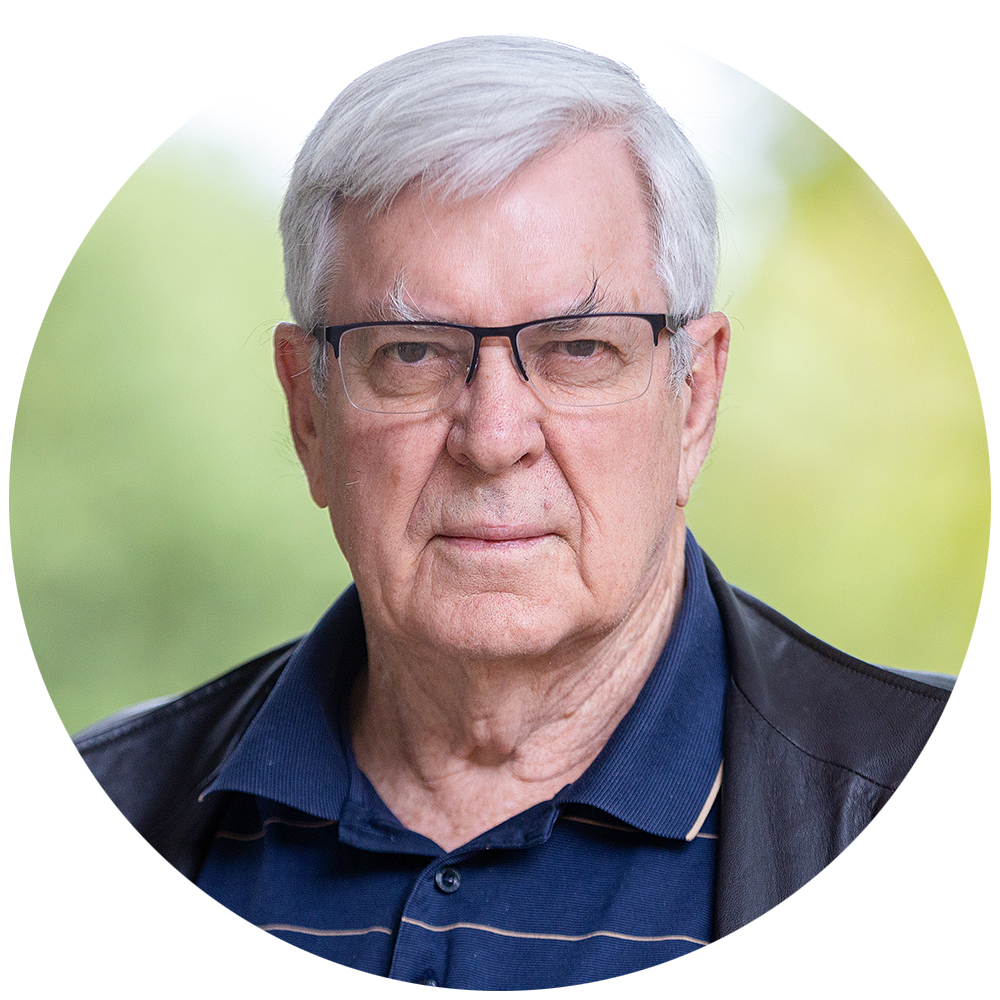
Professor Bob Gregory
Professor Gregory began his career in economics at University of Melbourne, graduating with a B.Com. with 1st class Honours in Economics in 1961. In 1967, he received his PhD from the London School of Economics. He commenced at the Department of Economics at the Research School of Social Sciences at ANU in 1969, was made a professor in 1981, and has been Head of Department since 1987.
Professor Gregory has made major contributions to the development of economic policy in Australia. From 1985–95 he was a member of the Board of the Reserve Bank of Australia, and from 1986–91 he was a member of the Australian Sciences and Technology Council.
Professor Gregory is an elected Fellow of the Academy of Social Sciences (1979) and has been nominated the Economic Society of Australia Distinguished Fellow (2001). In 1983–84 he held the Chair in Australian Studies at Harvard University. In 1996, Professor Gregory was awarded the Order of Australia Medal.
Outside of his time at ANU, Professor Gregory has also held positions as Visiting Professor at Northwestern University and University of Chicago, as a Visiting Scholar at the Federal Reserve Board in Washington D.C., and at the Industries Assistance Commission. He has been President of the Economic Society of Australia (1997–99), and Editor of the Economic Record, the leading Australian economics journal, as well as serving on Editorial Boards of numerous international journals.

Dr Dana Hanna
Dr Hanna holds a PhD in Economics from ANU and is a Senior Lecturer in the ANU Research School of Economics. She currently serves as the Associate Dean (Education) in the ANU College of Business and Economics.
With a focus on applied microeconomics, Dr Hanna’s research encompasses a wide range of topics, including gender literacy in education, education design, the costs and impacts of domestic violence, wage impacts of parental leave and family economics. Her expertise also extends to experimental design.
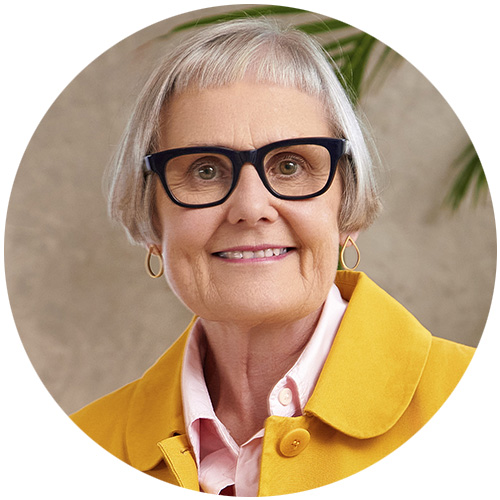
Associate Professor Brigid Jordan AM
Associate Professor Jordan is a paediatric social worker and infant mental health clinician and researcher who worked at the Royal Children’s Hospital for 35 years. Her research explores the relationship between early life stress and the health and mental health of infants and young children and has a strong focus on clinical and translational outcomes. She has extensive experience extending infant mental health knowledge and skills into other fields, including paediatric nursing, early years education and child welfare. Brigid is a past President of the Australian Association for Infant Mental Health and served on the Board of Directors of the World Association for Infant Mental Health.
Separate to her Parkville Institute responsibilities, Associate Professor Jordan is an Honorary Principal Fellow in the Department of Paediatrics at the University of Melbourne and Honorary Team Leader for Infant Mental Health research in the Brain and Mind group at the Murdoch Children’s Research Institute. She is an investigator on the University of Melbourne team that evaluated an intensive early childhood education and care model for babies and toddlers living with significant adversity and is a co-author of the evaluation reports and the description of the model of intervention.

Dr Anne Kennedy EdD
Dr Kennedy is a Fellow of the University of Melbourne Graduate School of Education, and a highly experienced and respected consultant in early childhood education. Her consultancy work follows extensive experience as an early childhood teacher and academic working in teacher education programs in Australia, Sweden, Singapore and the USA. Dr Kennedy was a member of the Charles Sturt University team that developed Australia’s first national Early Learning Framework.
Dr Kennedy’s national reputation and engagement in the field of early childhood is evident in her membership of the Australian Government Preschool Outcomes Measurement Expert Advisory Group and her membership of the Board of the Australian Education Research Organisation (AERO). She is a non-executive Director of The Front Project and Parkville Institute, a former member of the Victorian Children’s Council, a member of the Victorian Government, ‘Best Start, Best Life’ Taskforce and a Trustee of the Creswick Foundation.
As a member of a University of Melbourne multi-disciplinary research team, Dr Kennedy co-authored the description of an intensive early childhood education and care model in 2019. The model achieved remarkable learning and developmental outcomes for young children living with significant social disadvantage and risk factors in the initial phase of the research. Redressing educational inequities for young children through evidence informed, high quality programs is central to Dr Kennedy’s research and practice work in the sector.
Dr Sutanuka Roy
Sutanuka is a Senior Lecturer at the ANU Research School of Economics and a John Mitchell Fellow. She is also a Research Scholar at the Becker Friedman Institute, UChicago. She received her PhD from LSE in 2018.
Her research focuses on understanding the role of latent traits as determinants of productivity and persistence of norms with deep origins. She uses both observational and experimental data in her research. Her field experiments include collaborations with schools in the US, governments of India and Bangladesh. She has published in leading economics journals including Journal of Economic Growth and the Journal of Public Economics.
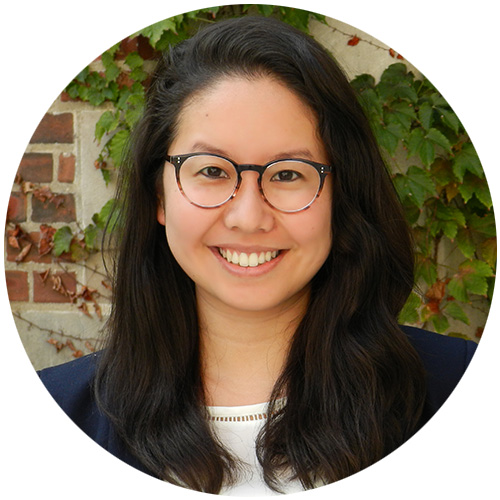
Assistant Professor Karen Ye
Karen Ye is an Assistant Professor of Economics at Queen’s University in Canada and Director of JILAEE – the Joint Initiative for Latin American Experimental Economics. She received her PhD from the University of Chicago in 2019. Her research focuses on behavioral/experimental economics. In particular, she studies social influences on decision-making in the topic of education, including how high school students make educational decisions, how parents invest in their children’s education, and the effects of early childhood interventions. She has partnered with schools, companies, and government organisations in the US, Argentina, and other countries to conduct policy-focused field experiments.
The conference organisers have managed to secure discount rates for participants of the conference at the following hotels:
Hilton Garden Inn
(1km from conference venue)
Address: 122 The Esplanade, Darwin City NT 0800
Novotel Darwin CBD
(1.1km from conference venue)
Address: 100 The Esplanade, Darwin City NT 0800
Mantra on the Esplanade
(1km from conference venue)
Address: 88 The Esplanade, Darwin City NT 0800
Mantra Pandanas
(1km from conference venue)
Address: 43 Knuckey St, Darwin City NT 0800
 Sit together
Sit together
Trent Lee, Bundirrik Cultural Services and Design
The story behind the artwork is about listening to each other and learning from old ways and incorporating it into new ways.
The colours that were used are the colours of ANU and CDU – gold and black for ANU and blue for CDU.
In the artwork there is a black cockatoo and a yellow-crested cockatoo.
The yellow-crested cockatoo has its beak open to symbolise sharing the new ideas, with the black cockatoo sitting quietly, listening and waiting for its time to share its knowledge.
The wise black cockatoo and curious, yellow-crested cockatoo are coming together despite their different backgrounds, sharing a deep passion for learning and a desire to improve shared knowledge.
The black cockatoo has centuries of wisdom passed down through generations, valued tradition, and the teachings of the old ways. The black cockatoo sees the importance of respecting and preserving the old ways of knowledge.
With the yellow-crested cockatoo being fascinated by modern technologies and innovative approaches to learning, it constantly seeks out new ideas and methods, eager to push the boundaries.
When the two come together, and share their stories and their knowledge, collaborating on research and blending the old ways with the new, by listening to each other and embracing both wisdom and modern innovation, they could achieve far more of what is known and explore undiscovered knowledge.
Neither of the cockatoos symbolise a particular university and the colours of each university being on each cockatoo shows the mutual respect and interest in striving for a better future.
